This framework serves as the foundation for our wellbeing programme, which aims to integrate the ATL skills of research, thinking, communication, self-management, and social/collaboration. By the completion of the wellbeing programme, students would have acquired the IB learner profiles of being risk-takers, open-minded, knowledgeable, thoughtful, and caring by the end of their time at ARIS.

WELLBEING CLASSES IN SECONDARY
As introduced last semester, wellbeing classes for MYP 1-3 were carried out twice a week, with the first class of the week being a theory based class and the second week being a project based class. We began the semester by finishing off on the third module, Embracing Diversity. We are currently rounding up on the fourth module, Health, Mind and Body.
Under Embracing Diversity, some projects for the different years included:
- MYP1: Cultural Showcase for 6 weeks
Each week, students focused on different cultures or countries. They were encouraged to research and present aspects such as traditions, customs, food, music, and clothing.They presented their findings to the class and teachers. Based on their presentation, students were graded out of 5 by their classmates, focusing on Confidence, Articulation, Content and Creativity
- MYP2: Diversity Music Project
Students were asked to look into music from different cultures and regions of the world as a way of exploring the diversity of the classroom..
They were to research and select at least 2 songs that represent a specific culture or conveys a message of diversity, equality, equity and inclusivity as well as learn and perform their chosen songs A reflection on how the exercise encouraged them to appreciate diversity.
SOME PROJECTS


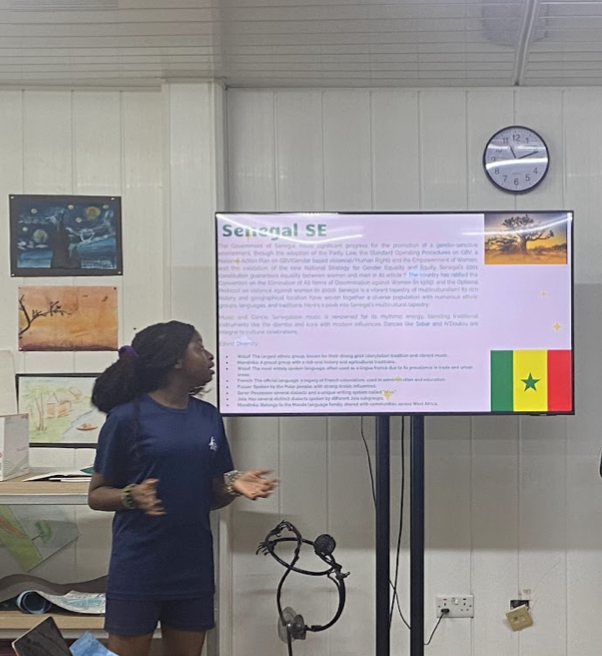
- DP/CP Wellbeing
These past few weeks have quite daunting for our DP/CP students as they have been preparing for and writing their mocks, as well as submitting their subject projects. Due to the heightened levels of stress our students are experiencing, we have put measures in place to support their wellbeing during this time. Aside from weekly check-ins and wellbeing classes, we are providing individual and group interventions tailored to reducing stress. The image below shows a stone art session for a section of DP students.

UPSTRIVE
Upstrive is a fantastic tool we have introduced to our community this academic year as part of our efforts to improve access to wellbeing for our students. With this platform, the homeroom advisors and the wellbeing team are able to do the following:
- Track real-time data on students’ mood/emotions at the start of the day
- Access evidence-based resources to support student wellbeing
- Allows teachers and the wellbeing team to ask open questions, create engaging polls, post relevant content for student engagement
- Promote collaboration between HR teachers and the Wellbeing team
This semester, a few changes have been introduced and check-ins are done on Mondays, Wednesdays and Fridays. We also provided monthly themes and check-in activities and a 21-day journaling project that the homeroom advisors can explore with their students to promote a healthy environment in the classroom.
We are constantly looking for new and creative ways to improve the educational and personal development of our students, and want our students to creatively and safely communicate their ideas, feelings, and experiences.
We believed that these activities would not only bring well being closer to our students, but would also help students acquire important skills like critical thinking, effective communication, and self-awareness.
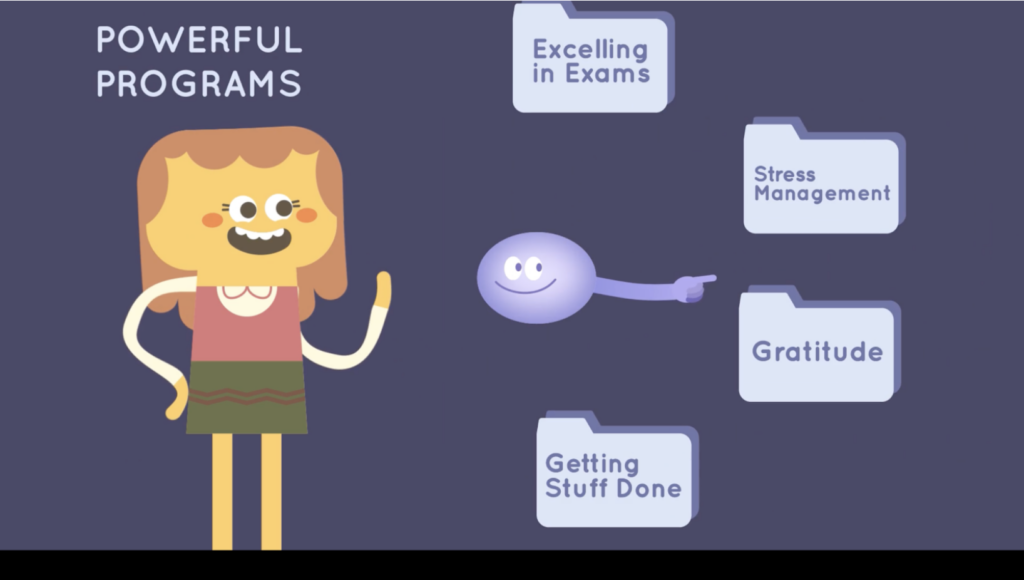
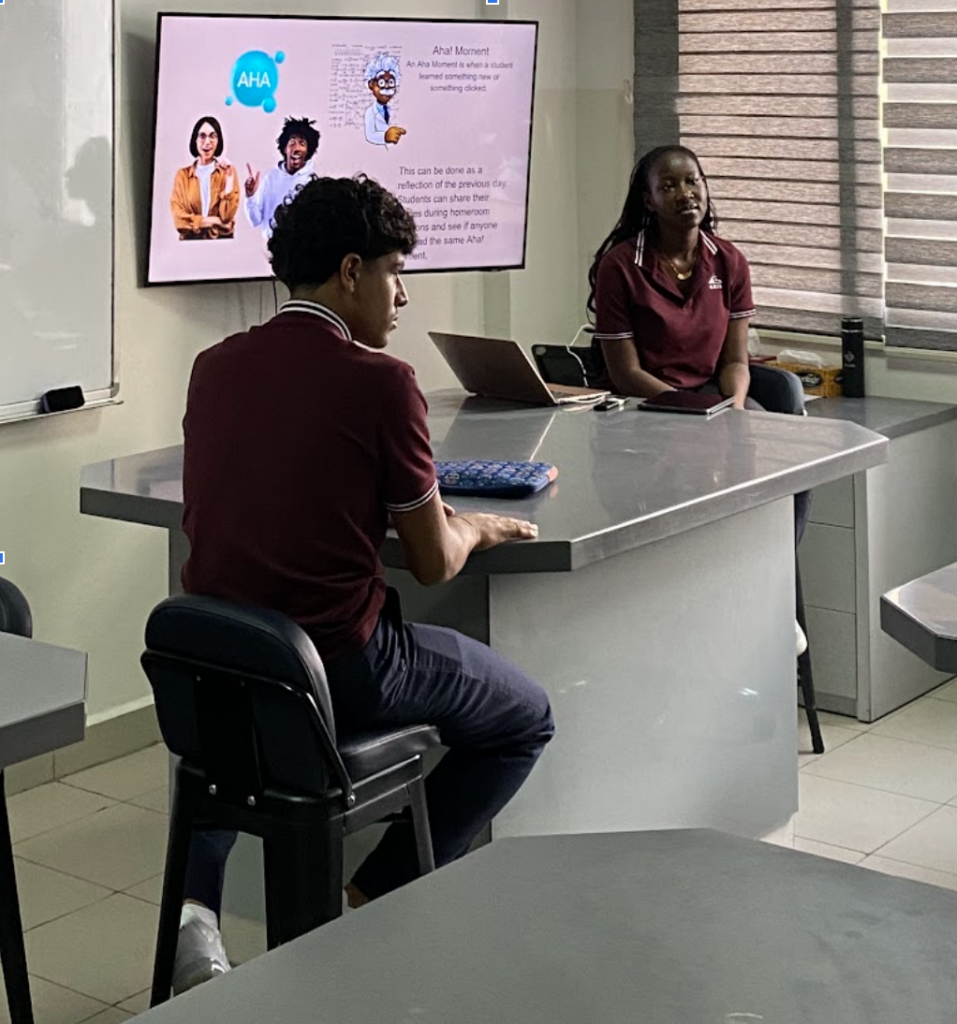

STAFF SNACKS & WELLBEING WEDNESDAYS
Monthly staff snacks have always been something to look forward to. In January, staff were treated to Papaye, which was very well received and got lots of positive feedback. In February, we included a variety of fruit juices, as well as some pies.
Wellbeing Wednesdays where staff are given a half day on the first Wednesday of every month has been consistent since the start of this semester. For days that staff missed the wellbeing Wednesday, a makeup date was provided.

AISA-GISS WELLBEING INITIATIVES
This year, ARIS hosted the AISA-GISS conference for the first time and the first for West Africa. As part of supporting our amazing student leaders in planning for this event, we guided in the design of an amazing relaxation space that became the highlight of the conference. Students used this wellbeing corner, named the Serenity Nook as a place to relax and connect with other participants through some board games, stone and mandala art, book-reading and yoga corners.

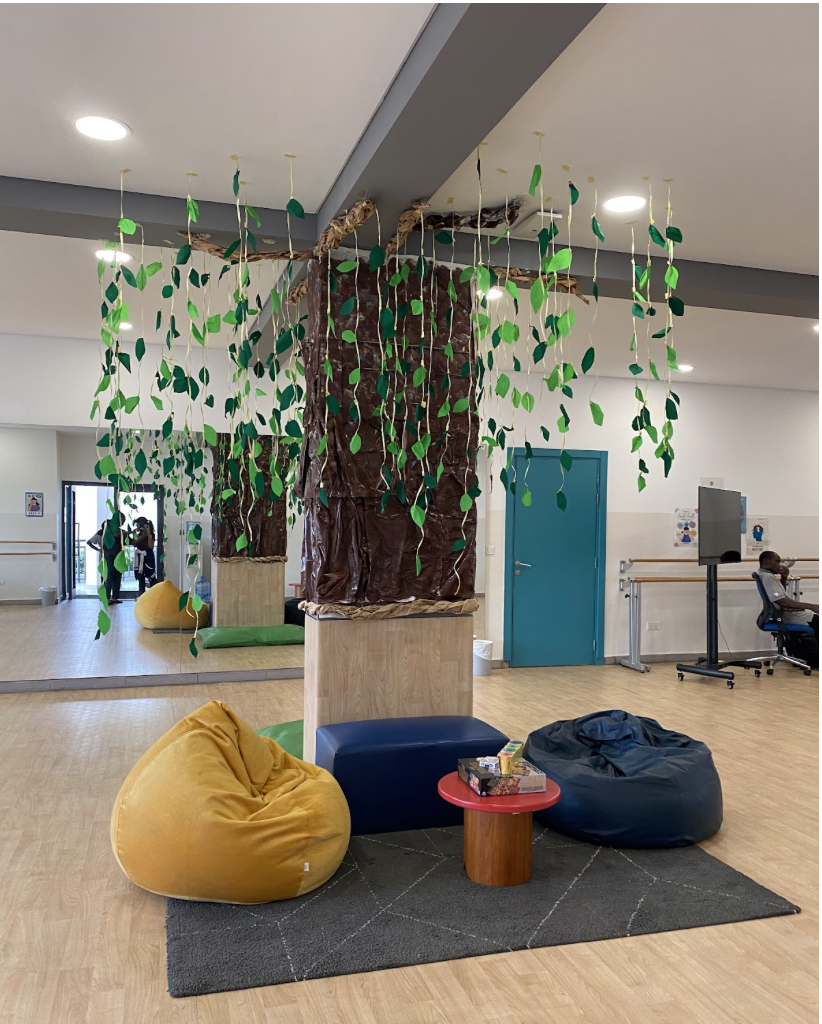
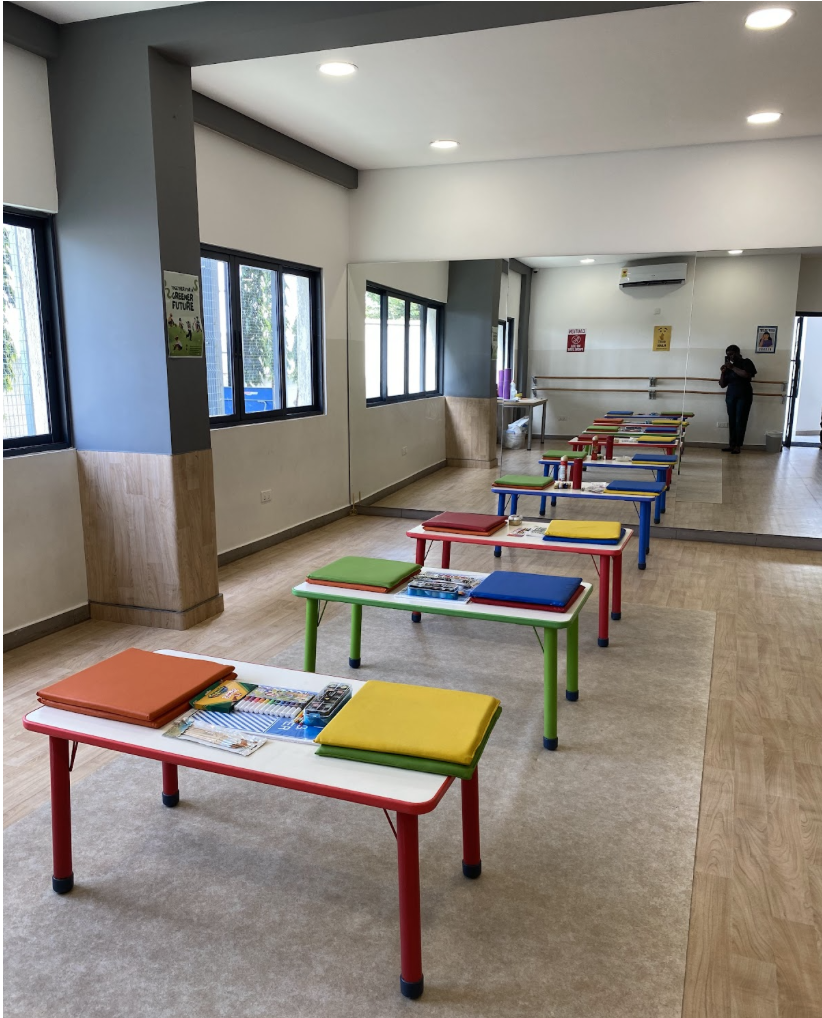

RECOMMENDATIONS
Loneliness among teenagers is a pressing issue that needs our attention. Recent research has highlighted a concerning trend: many teenagers are experiencing profound feelings of loneliness, even when surrounded by others. Loneliness is not simply about being alone; it’s a deep sense of disconnection that can impact teenagers’ emotional well-being. Understanding and addressing this issue is crucial to supporting our teens during this critical phase of their lives.
Research has revealed the following:
- The Social Media Dilemma: While social media promises connectivity, it can sometimes amplify feelings of loneliness. The constant exposure to carefully crafted online personas can create unrealistic comparisons and lead to a sense of isolation.
- The Emotional Rollercoaster of Adolescence: Teenage years are marked by intense emotional and physical changes. Adolescents are grappling with identity formation, peer pressure, and academic stress. These challenges, combined with the desire for acceptance and belonging, can contribute to feelings of loneliness. We can work together to be their pillars of support and understanding during these difficult and confusing times.
We believe it is crucial to address the issue of loneliness among students, as it can have a profound impact on their well-being and academic performance. Here are four valuable recommendations and strategies that can assist you in supporting your child through their feelings of loneliness.
- Encourage Open Communication:
Maintain an open line of communication with your child and create a safe space for them to express their emotions. Encourage them to share their experiences, both positive and negative, and actively listen without judgement. By fostering open communication, your child will feel more comfortable discussing their feelings of loneliness, allowing you to better understand their perspective and provide appropriate support.
- Promote Social Connections:
Loneliness often stems from a lack of meaningful social connections. Encourage your child to engage in activities that interest them and provide opportunities for them to meet like-minded peers. Encourage participation in school clubs, sports teams, or community organisations that align with their hobbies and interests. Additionally, consider organising playdates or get-togethers with classmates or neighbours to help foster new friendships outside of the school environment.
- Teach Social Skills:
Some students may struggle with social skills, making it difficult for them to initiate conversations or build relationships. Help your child develop these skills by providing guidance and opportunities for practice. Role-play scenarios with them, teaching them how to start conversations, listen actively, and empathise with others. Encourage them to practise these skills in real-life situations, such as during group projects or extracurricular activities. With time and practice, your child will become more confident in their social interactions, reducing feelings of loneliness.
- Foster a Sense of Belonging:
Creating a sense of belonging is crucial for combating loneliness. Encourage your child to explore their passions and interests, both inside and outside of school. Support them in finding activities or hobbies that bring them joy and a sense of purpose. Additionally, involve them in family decision-making processes, allowing them to contribute their ideas and opinions. When children feel valued and included, they are more likely to develop a sense of belonging, which can help alleviate feelings of loneliness.
Remember, addressing loneliness requires patience and understanding. Each child’s experience is unique, and it may take time for them to overcome their feelings of isolation. By implementing these strategies and providing a supportive environment, you can make a significant difference in your child’s well-being and help them forge meaningful connections.
If you feel your child’s loneliness is persistent or significantly impacting their daily life, please do not hesitate to reach out to the Wellbeing Division for further guidance and support.
